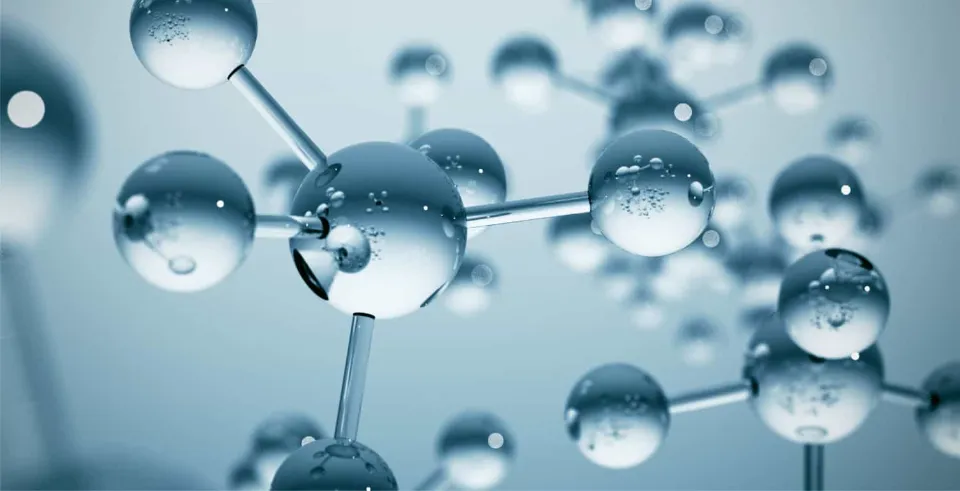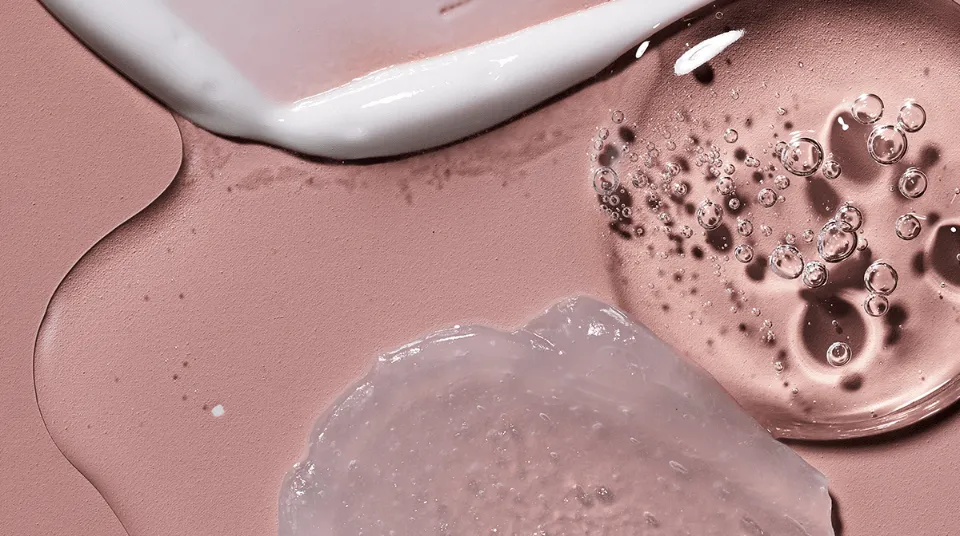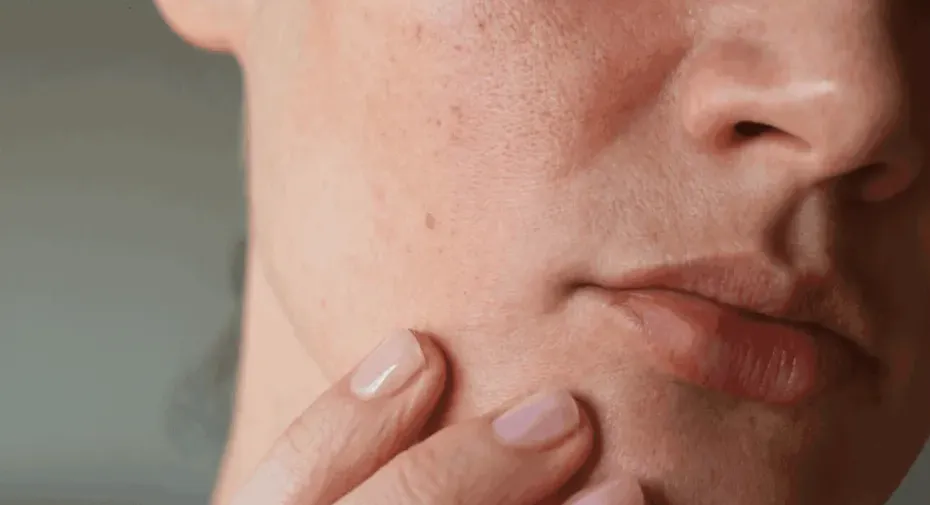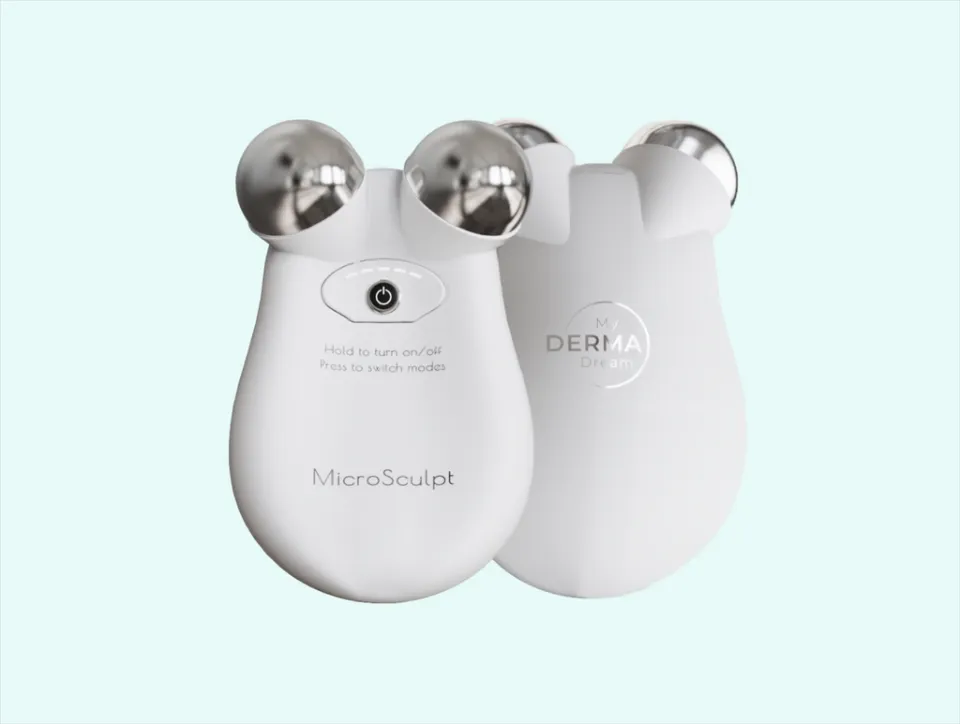You’ve likely heard the buzz around peptides as an anti-aging must-have to smooth, repair, and hydrate skin, but what are peptides in skin care?
Peptides are found in every cell & tissue of the body. They are short chains of amino acids that form larger proteins which are the building blocks of the skin. For the structure and operations of the skin, these proteins are necessary.
Here, we’ll explain the science behind how peptides function and what they actually do for our bodies and skin.
What Are Peptides?
First, we need to start with the science: Peptides are fragments of proteins.
On their own, peptides are made up of amino acids. There are hundreds of different peptides that can be made when amino acids are combined in specific ways, and when peptides are assembled in particular ways, they can be converted into different types of proteins.

Proteins, like collagen and elastin, are the fundamental building blocks of skin. Proteins and peptides are necessary for skin to remain intact. As a result, the skin becomes less elastic, loses firmness, develops wrinkles, changes in texture, and doesn’t recover as quickly.
The most fascinating thing about peptides is that a ton of research has amply demonstrated how each one specifically addresses a particular skincare need.
Additionally, they impart to the skin the necessary skills for reviving these fundamental components, assisting in the renewal of aging skin.
You Might Also Like: Why is Skin Care Important?
What Do Peptides Do on the Skin?
There are three main categories when we speak to peptides used in skincare.
- Signalling peptides that work to boost collagen, elastin, and other structure protein productions.
- Carrier peptides promote the regeneration of the skin.
- Inhibitor Peptides work by regulating the body’s natural process of losing collagen and can help inhibit pigmentation.
Our Laboratories performed in-vitro testing on reconstructed skin models in addition to the ground-breaking characterization of peptides found in various plant extracts.
Read More: When to Use a Face Mask in Skin Care Routine?
Different Types of Peptides
When it comes to skincare, not all peptides are created equal. Although there are many peptides, some are more effective for the skin than others.
Neurotransmitter Peptides
Neurotransmitter peptides are found in injectables like Botox and topical treatments like Argireline, which relax your facial muscles so they don’t contract as much, can both be used to lessen wrinkles, frown lines, and other afflictions.
According to a 2009 study published in the International Journal of Cosmetic Science, these peptides can reduce some wrinkle types by 30%.
Signal Peptides
When it comes to skin care, palmitoyl pentapeptides, also known as signal peptides, are the most popular.
They are known to promote the synthesis of the structure proteins collagen, elastin, and other proteins that give the skin its firm and plump appearance.
Carrier Peptides
The fact that carrier peptides help the skin absorb trace elements like copper and magnesium is how they get their name.
Since it can increase the production of collagen, which firms the skin and improves elasticity, copper has become an especially well-liked ingredient in recent years. Additionally, it has been demonstrated that copper complexes can lighten age spots and reduce the appearance of skin photoaging.
Enzyme-Inhibitor Peptides
Enzyme-inhibitor peptides function by slowing the body’s normal process of losing collagen, as their name implies.
While some peptides derived from soy can help prevent pigmentation, peptides from rice proteins help the body retain more collagen.
Benefits of Peptides

When it comes to skincare products, peptides may have several benefits. To fully comprehend peptide’s potential advantages, more study is still required.
Reduces Fine Lines and Wrinkles
Age-related declines in collagen and elastin fibers weaken skin. As a result, the skin loses firmness and develops fine lines and wrinkles.
By boosting collagen production and enhancing elasticity, peptides, on the other hand, aid in skin smoothness.
May Treat Acne
The antimicrobial properties of some peptides. To put it another way, those peptides kill bacteria and other microorganisms. Antimicrobial peptides may aid in the treatment of long-term skin conditions like acne, according to some evidence.
Your immune system reacts when bacteria clog skin pores. The result is the development of pimples on the skin.8 In contrast, antimicrobial peptides may stop bacteria from clogging pores.
Helps Heal Wounds
A crucial protein in the recovery of wounds is collagen. Some peptide-containing products may speed up the healing of minor wounds because peptides increase collagen production.
Additionally, some research indicates that some peptides repair the skin while preventing infections because they have antimicrobial properties.
The healing abilities of peptides may help people who have wounds that take longer than usual to heal, like some diabetics.
Conclusion: What Are Peptides in Skin Care
Peptides are amino acids that are the building blocks of certain proteins needed by the skin, like collagen and elastin.
A peptide-containing serum or moisturizer can result in firmer, more youthful-looking skin and perhaps even fewer breakouts.
Although peptides are a promising ingredient for skin care products and are generally regarded as safe, more research is required to determine their effectiveness.
FAQs
Are Peptides Better Than Retinol?
Peptides are fantastic for skin that is sensitive or that is just starting an anti-aging regimen.
What is the Disadvantage of Peptides?
Peptides have weak membrane permeability.
Can I Use Peptides Everyday?
Your peptide serum can be used once daily, though you are safe to use it twice a day if you prefer.




